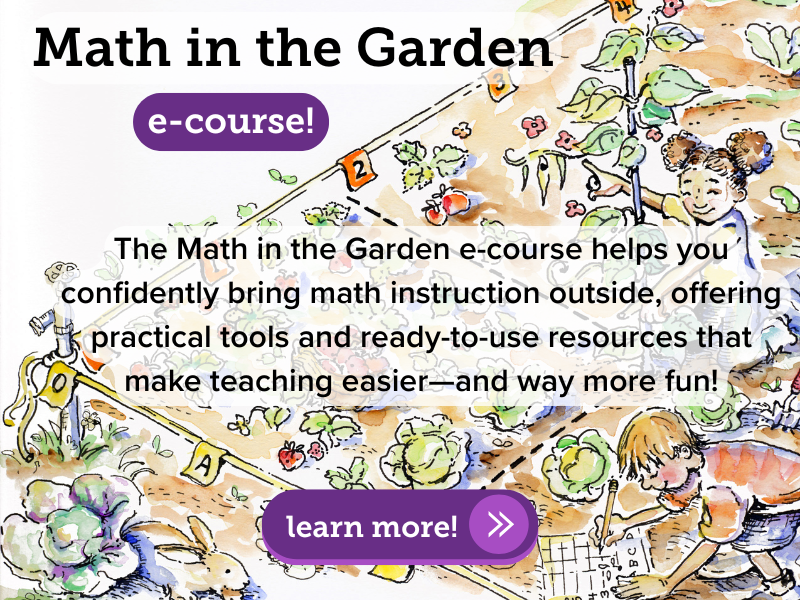Materials:
- garden space and tools
- plants
- time for creativity and exploration
Instructions
It is never too early to get kids hooked on gardening. Garden expert Cheryl Dorschner shares some of her favorite tips for engaging young gardeners along with her observations about how kids approach the garden differently as they age. Here are some of her top tips for supporting fun kids’ gardening experiences:
- Recognize that kids' gardening priorities are different, well, practically opposite those of adults.
- Let kids choose what to plant. Offer guidance and make sure there are some sure-success plants among their picks. But if they want beets, roses, and petunias, why not? Relax your standards.
- Crooked rows or weeds as pets are fine.Transplanting is fun, even if your child plays with plants the way they move action figures or Barbies about. But remind them that plants' roots need some time to grow in one place.
- Leave room for good old-fashioned digging. Holes are a highly popular landscape feature. Look for worms. Add water, and frogs appear.
- Model the message that some insects are beneficial, and even destructive bugs are highly interesting.
- Do behind-the-scenes maintenance of kids' gardens, keeping them edged and weeded. Don't expect kids to do all the watering and pest patrol.
Gardening through the Years
Preschoolers, Ages 3-4
As long as I don't expect us to accomplish something in the adult sense of the phrase, gardening is great fun. We move mulch. We catch toads. We pull a few weeds. We blow the fuzz off dandelions. If a child wants to plant last night's dessert — watermelon seeds, we do just that. This age of unbridled exploration must be accompanied exploration. Preschoolers are never safe unattended. And while you're together, you have a chance to explain the life cycle of a seed or the history of evolution in an ancient fern. Let kids take the lead while you supply the background information. It's in the storytelling that kids learn about gardening and the world. Don't know all the answers? No one does. Library trips are part of the journey.
Kindergartners, Age 5
"All the world's a stage" for youngsters who have an emerging sense of how to play with others. Gardens are great places to act out dramas. Create forts, tree houses, secret hide-a-ways, and kids' own gardens where children can interact and learn. Continue to let kids take the lead. If your child sees a hollow stump as a potential troll house, drop your pruning shears and join him in inspecting it. Help him gather the supplies he needs to make the project happen. Assist only where needed — say in lashing sticks together to make a ladder, or by offering leftover nasturtium seeds or marigold seedlings to embellish his ideas. At last, kids this age have the attention span and dexterity to be left within sight to create their own worlds. And don't fuss about how those little Edens turn out. The world was a messy place during its creation.
Early Elementary School, Ages 6-7
Your youngster's improving reading and math skills add new depth to gardening fun. Now kids can make plant markers, read seed packets, pore over catalogs, and pay for nursery plants. And yet they're still wide-eyed and open to nature's mysteries. Soil, holes, and water hold endless fascination, as do bugs. But for children this age, the "doing" is still more important than the end result. For them, a garden is a willy-nilly collection of plants of all shapes, sizes and colors. A bouquet is whatever fits in the diameter of a palm and curled fingers and whose stems reach into a jar full of water.
Middle Elementary School Ages 8-9
The emphasis shifts from doing to doing well. Your children can design a garden on graph paper, thinking about flower heights and colors or how much space a tomato plant will need. They can translate that drawing to a real garden. Their ability to use tools increases; they can build arbors and fences. It's never too early, but now is an especially wonderful time to enter your vegetables and bouquets in contests at the local fair or town events or to join a group such as a community garden, CSA or 4-H. These activities combine gardening with friendships — both so important now.
Late Elementary School/Tweens, Ages 10-11
Now gardening celebrates its ability to cross several disciplines with ease to speak to your children's many interests. Garden is science, math, art, and still fun. Your youngsters can organize a class project to create a small garden at the local nursing home — and gain the support of businesses and parent volunteers. They can build garden structures and community. They can start seeds and businesses. We know a couple of boys whose award-winning sunflowers at the fair launched their own sunflower seed business. And the opportunities for fun in the garden are endless. With a little imagination, this year's scarecrows can look like the Spice Girls, or Arthur, or the scariest dementor Harry Potter ever met.
Early Teen Years, Ages 12-13
At this age, if youngsters don't take a hiatus from gardening in favor of friends and anything currently "way cool," they can put their green thumbs to work in the family landscape and in community projects. While focusing on sports, fashion, or school plays fills their days to overflowing, how can gardening compete? In a word, it has to be "awesome." And it is. Many students now do independent studies, such as "eighth-grade challenges," to demonstrate their mastery of a subject. These are the years when some gardening project guided by a biology teacher, group leader, neighbor, or parent just may set some youngsters on career paths. It's enough to hope your child will grow up to garden, but who knows, you may have a budding botanist or future horticulturist in the family.



